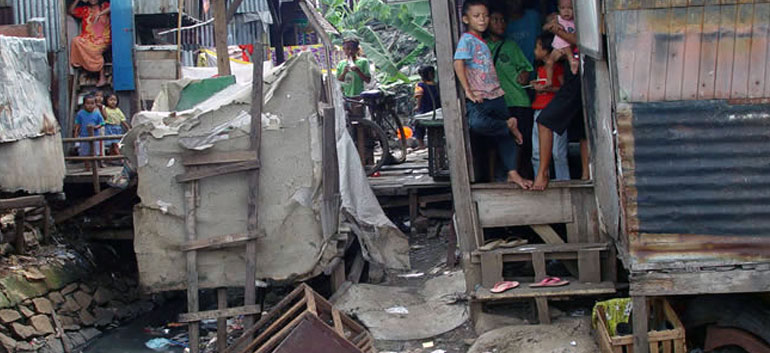Episcopalian Church officials in northwest Colombia are making public calls to draw attention to the deepening human rights crisis facing residents in the region, reported local media Wednesday.
Bishops from the diosceses of the Quibdo, Pretoria, Apartado, and Istmina-Tado municipalities in Choco have united in denouncing the the unchecked violence and lack of public services in the northwestern state.
“[In Choco] lives a crucial and worrisome situation owing to the frequent violations of human rights and breaches of international humanitarian law,” said Julio Hernando Garcia, bishop of Istmina.
Following a trip to the western part of the state, the bishops expressed that basic human rights such as access to education, decent housing, health, and mobility are severely lacking in the region, one of the most impoverished in the country, according to a statement released by the General Assembly of Colombian Bishops.
A document signed by bishops around the country states that Choco classifies as an abandoned state in Colombia, where criminal organizations, narcotrafficking, drug addiction, and sexual assault exert a constant presence, Bogota’s Caracol Radio reports.
Choco struggles under serious food, health, and safety concerns
Food and health security are concerns in the region, where the state has been accused of abandoning its responsibility. “The quality of hospital infrastructure is very low. There is a high child mortality rate due to preventable illnesses,” the bishops wrote.
“Joy has been lost. The people cry too much. They used to lived here with an abundance of food, and now the people endure hunger,” said Garcia, speaking of the state’s immense biodiversity and agricultural wealth, and the paradox of the severe poverty endured by residents. “Children die of malnutrition, and the elderly do not have food.”
Choco has the highest poverty rate in the country, despite boasting among the most extensive natural resources in Colombia. Criminals and narcotraffickers run the region, using the coastline to access trafficking routes across Latin America, and converting the area into “a place where the human condition is lost,” according to Garcia in El Espectador.
The situation is made worse by the through forced displacement, economic blockades, intimidation tactics, rape, murders, and the recruitment of child soldiers by guerrilla groups throughout the armed conflict.
A UN report issued in June shows that over 2,000 people had been displaced in the region .
MORE: Over 4,000 indigenous people across Colombia displaced in 5 months: UN report
In April, Colombia’s Prosecutor General Office announced that they would begin investigating links between criminal groups and local authorities in the Northwest region. Mayor of Choco, Ebrin Mosquera, along with other politicians was arrested for collaboration and receiving money from the criminal organization, Los Urabenos.
MORE: West Colombia government officials investigated for drug links
Those who fight for change in Choco are often threatened of silenced by armed groups. In April, Jesus Adan Quinto, a leader for the displaced population in Choco, was assassinated at his home by unidentified men.
MORE: Leader of displaced community assassinated in west Colombia
“No one lives with dignity here. Choco is becoming a land of violence,” said Garcia.


